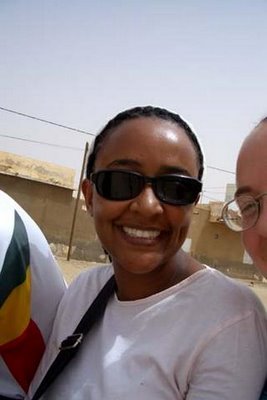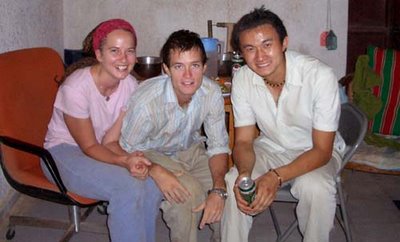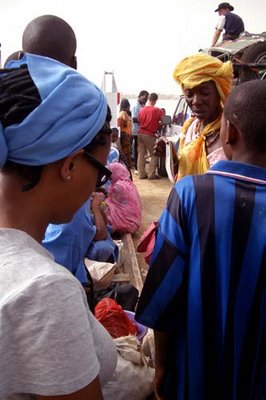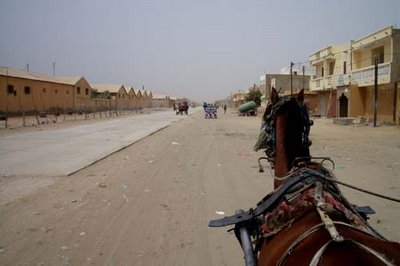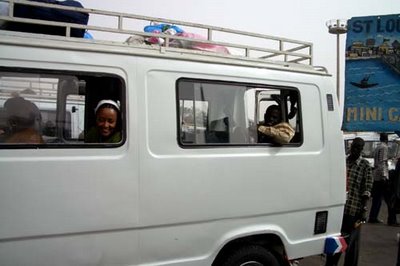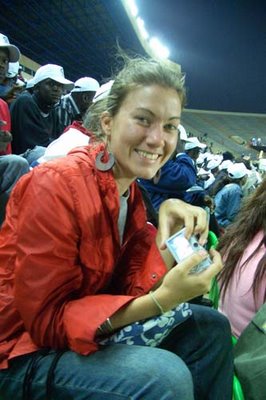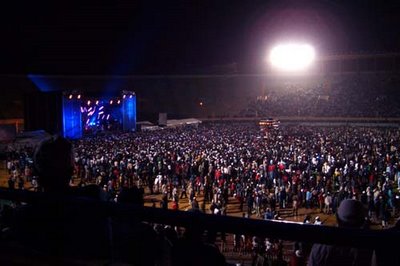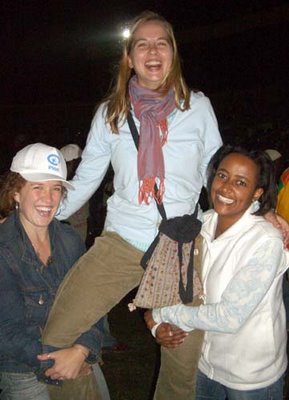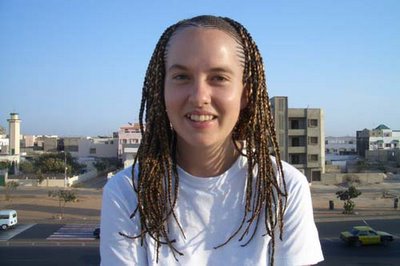Day 3: Riding in Mercedes
The gare in Rosso probably takes its cues from Senegal since upon arrival we were bombarded, even with Dan knowing his way around, by people trying to hound our white faces into a car. We would later learn that the farther you get from the border (with Senegal that is) the more straightforward and calm—almost professional—it becomes to get a taxi to the next city. We paid our ticket and hung out under a tree until the taxi filled, then quickly shepherded into a car, stuffed snuggly with four people into a three-seater backseat, we were off.
Nouakchott, though the capital and presumed happening, has a deserted feeling partly from all the dust and sand blowing in for miles to leave the desert and be jetted out into the ocean. Sitting on the ocean, the city makes no pretense of being a beach town. You can head to the fish market and see men coming in with the day’s catch but that’s about it, no curving corniche or seafront real state. It's a city traditionally founded by nomads--those used to the unlimited space of the desert and the terrain of the sub-sahara. So though a small city, it spread itself out and takes awhile to get from one end to the other.
We arrived and were immediately embraced in more peace corps hospitality with Molly, a good friend of a good friend of mine, taking us in and housing us in her posh (posh for around here – even has hot water) apartment. We spread ourselves out on her bedded-down futons eyeing each other about, playing the dance of getting-to-know-you and waiting for the time when we can know each other better and ask the tougher and infinitely-more interesting questions about who do you love and where, when it hurts and why, and letting down the guard that let’s us laugh without pretenses. We got there with her, this place of knowing, but more so the second time around; we spent our last two days in Mauritania with Molly, but only after we’d been seasoned with travel apres qu' on a fait le tour and we fell into her arms after a scary overnight taxi ride. But this time, this first time, we only let go of our histories, how we’ve come to be, where we go or not go from here.
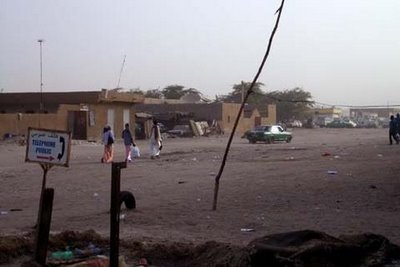
Nouakshott garage before we left.
We ate at The Sahara, a Lebanese restaurant we would crave later in the desert (once we were really in The Sahara) half-eating sand in every morsel and drink, but for the moment we ordered fatah (battered and fried dough with meat and onion inside) and the babel ghanoug (hummos made with eggplant) and the flat Lebanese cheese pizza. We strolled home in the dark wrapped in the warmth of our conversation and a good dinner sitting contentedly in our stomachs, but it was when we started asking about religion and politics and sharia law that Molly stopped us looking around saying it would be better to talk about this later fearing our voices would carry, even in our English. And it was the jolt that we’re in a country not our own, a country where it’s illegal to be Christian, Jewish, Hindu, or frankly anything but Muslim. There’s something severe in that to our pampered AmericanDreamFreedomofReligionFreedomtoChooseWhatYouBelieve ears, but you’re not normally accosted with it if you’re a visitor to Mauritania, so laisse tomber I’ll leave the rest for another day.
We opened the doors to Molly’s roof climbing the dark stairs resting on her terrace examining Nouakchott in the night. I realized I’d barely taken any pictures and we were already leaving for our next city in the morning. But we buried our heads in the pillows and left our travels be for the moment.
Tsilat riding the chariot.

Molly.
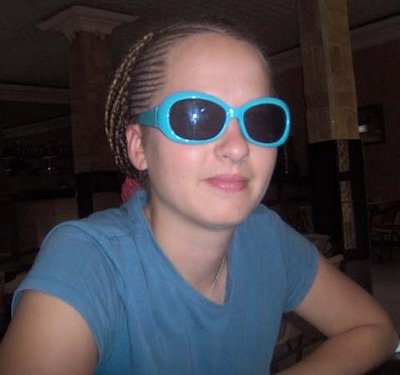 Wearing Molly's sunglasses.
Wearing Molly's sunglasses.
